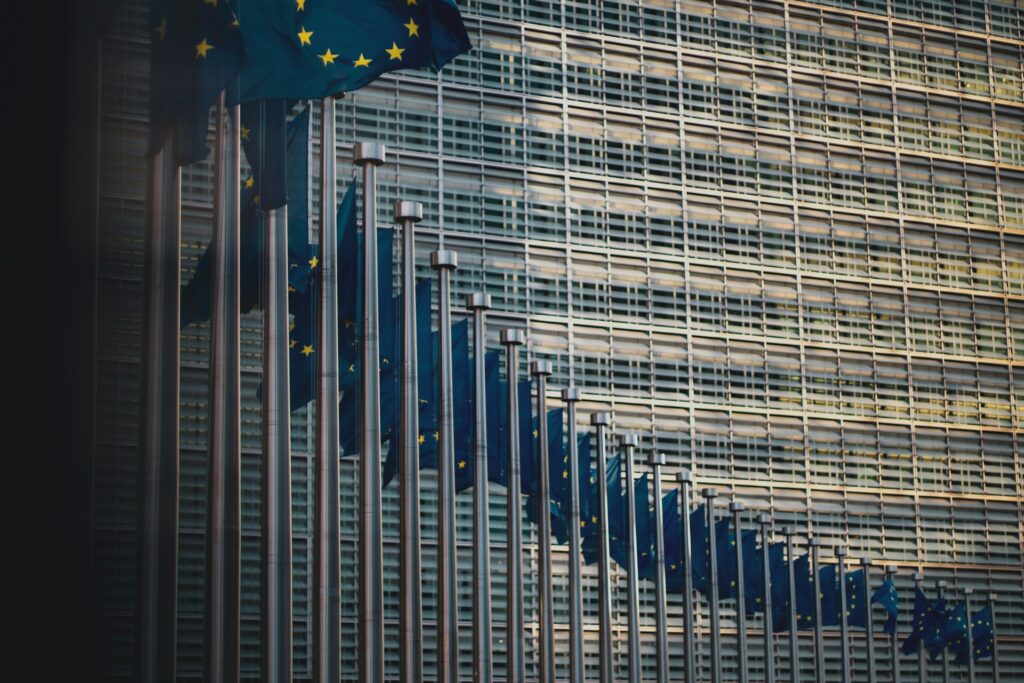Introduction: A New Era of Global Politics
In the last decade, global politics have undergone a significant transformation, particularly in the relationship between Europe and the United States. Under the Trump administration, the U.S. adopted an “America First” approach, causing strain in transatlantic relations. This shift compelled European nations to reevaluate their strategic dependencies, prompting discussions about economic self-reliance, defense autonomy, and a more assertive geopolitical stance.
The Breakdown of Transatlantic Relations
Historically, the European Union (EU) and the U.S. have shared strong diplomatic, military, and economic ties. However, during Trump’s presidency, tensions arose over trade policies, NATO contributions, and disagreements on global security issues. The withdrawal from key agreements such as the Paris Climate Accord and the Iran Nuclear Deal further exacerbated these differences, leaving Europe in a position where it had to reconsider its alliances.
Economic Autonomy: Reducing Dependence on the U.S. Market
One of the primary areas of European focus has been economic autonomy. The EU has sought to strengthen its internal market by investing in technological innovation, energy independence, and supply chain diversification.
- Strengthening the Euro: Efforts have been made to position the Euro as a global reserve currency, reducing reliance on the U.S. dollar for international trade transactions.
- Digital Sovereignty: Europe has taken steps to regulate Big Tech through laws such as the General Data Protection Regulation (GDPR) and the Digital Markets Act, ensuring that major American corporations do not exert disproportionate control over its digital economy.
- Trade Diversification: The EU has actively pursued trade agreements with Asia, Latin America, and Africa, reducing dependence on American markets. Deals such as the EU-Japan Economic Partnership Agreement and negotiations with Mercosur illustrate Europe’s attempt to diversify its economic alliances.
Defense and Military Independence: A Push for Strategic Sovereignty
One of the most contentious issues between Trump and European leaders was defense spending. Trump repeatedly criticized NATO allies for not meeting their defense budget commitments. This led to renewed discussions in Europe about developing a more autonomous military strategy.
- EU Army Discussions: The idea of a collective European defense force gained momentum, with leaders like French President Emmanuel Macron advocating for the creation of an EU army.
- Increased Military Spending: European nations, particularly Germany and France, pledged higher defense expenditures to strengthen regional security and reduce dependence on American military aid.
- PESCO and Joint Defense Initiatives: The Permanent Structured Cooperation (PESCO) framework was launched to enhance defense collaboration among EU member states, focusing on joint military capabilities and defense research.
Geopolitical Realignment: Strengthening Ties Beyond the U.S.
As tensions with the U.S. increased, Europe sought to bolster relations with other global powers.
- Closer Ties with China: Europe pursued economic partnerships with China, including the Comprehensive Agreement on Investment (CAI). However, concerns about China’s human rights record and aggressive foreign policies created complexities in this relationship.
- Strengthening the European-African Alliance: European nations intensified diplomatic and trade engagements with African nations, recognizing the continent’s growing economic and strategic significance.
- Reviving European-Russian Dialogue: Despite tensions over Ukraine and sanctions, some European countries have maintained dialogue with Russia to address security concerns and energy dependencies.
Climate Policy: Leading the Global Green Transition
While Trump withdrew the U.S. from the Paris Agreement, Europe doubled down on its commitment to combating climate change.
- The European Green Deal: The EU launched an ambitious initiative aimed at making Europe the first climate-neutral continent by 2050.
- Carbon Border Adjustment Mechanism (CBAM): To ensure fair competition, Europe introduced a carbon tariff on imported goods from nations with weaker environmental regulations, encouraging global industries to adopt greener practices.
- Investment in Renewable Energy: Countries like Germany, Denmark, and Spain led the transition towards solar, wind, and hydroelectric energy, reducing reliance on fossil fuels and foreign energy imports.
The Post-Trump Landscape: Is Europe Truly Autonomous?
With the Biden administration taking a more traditional approach to international relations, some tensions have eased. However, the lessons learned during the Trump era continue to shape Europe’s strategic policies. The EU remains focused on economic diversification, military cooperation, and climate leadership, ensuring that it does not return to overreliance on American policies.
Conclusion: The Future of Europe’s Global Position
The Trump era was a wake-up call for Europe, highlighting vulnerabilities in its economic and defense strategies. Moving forward, the continent is likely to maintain a more independent stance while still engaging with the U.S. on key global issues. Europe’s journey towards autonomy is not about severing ties but rather about establishing a more balanced, resilient, and self-sufficient geopolitical presence in an increasingly multipolar world.








